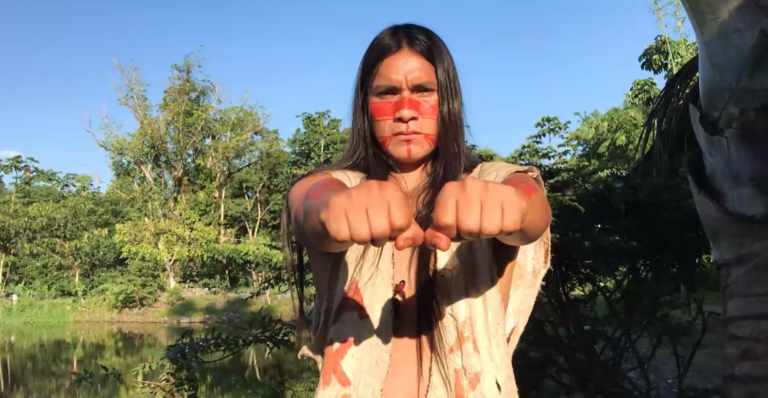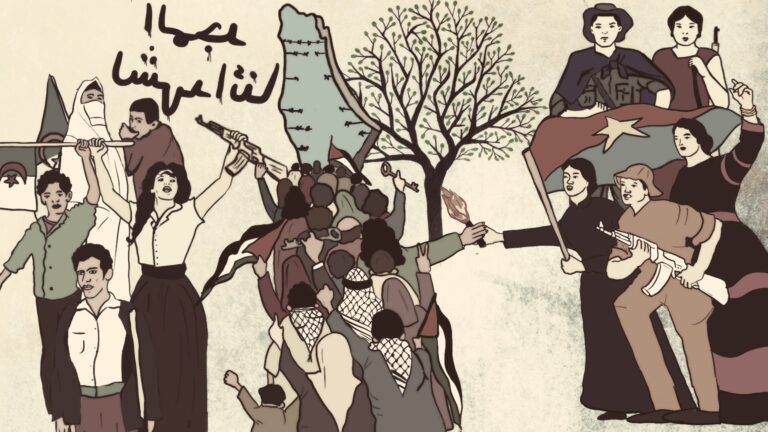We are daughters for freedom, we are cimarronas,
we are the Mississippi, the Cauca, the Magdalena, the Atrato…
we are happy and rebellious caribbeans, we are jungle, we are Africa, we are the world, we are women without time, what was and what will be…
Marimba, a libertarian cry, we are mgica, fresh rain, strength and courage
Marilyn Machado
In September 2023, Cooperation Jackson hosted the fifth meeting of the Global Working Group Beyond Development (GWGBD). Our meeting aimed to generate collaborative, intersectional knowledge on debt and reparations from a global perspective, emphasizing multifaceted alternatives that address one or multiple structures of oppression (patriarchy, capitalism, racism, caste, colonization, imperialism and predatory relations toward non-humans)
The overarching questions of the meeting were: What are reparations, and how can they be transformative? What different structural debts exist, and how do they impact our societies? How can we grasp and demonstrate the complexity and varying scales of debts and reparations in diverse social contexts? How do we connect the different conceptualizations of debt and reparations and translate them into concrete actions? What ideas, proposals and experiences can we contribute, as a Global Working Group, to advance reparations in constructive and “worldmaking” ways, and on which grounds?
Our meeting in Jackson, Mississippi, gathered 26 activists/critical scholars from 18 countries who shared experiences and knowledge of different regions of the world, as well as the different epistemologies and schools of thought that exist within them, in a collaborative effort to address these politically relevant and timely questions.
The Global Working Group Beyond Development is actively generating grounded knowledge, recognizing the necessity of multiple interconnected perspectives to tackle complex questions. At the fifth meeting of the Global Working Group, the significance of race and racism in discussions on reparations was notably emphasized. The meeting’s location in Jackson, Mississippi, which was the heartbeat of the fight for equality, especially in the 1960s and 1950s, heightened this emphasis. The struggles in Jackson, were documented in a book chapter co-written by two members of the GWGBD. Moreover, race and racism play a pivotal role not only in discussions of reparations for historical injustices like slavery and colonialism but also confronting neo-colonial practices associated with climate change. Many reparations struggles have arisen from Black and Indigenous movements.
Following the GWGBD’s aim and methodology, the six-day meeting provided different spaces for reflection, knowledge production, and strategic thinking around debt and reparations, an issue that is central to the discussion on colonialism and historical and contemporary injustices. The initial panel featured Indigenous and Black activists, a deliberate choice to kick off the conversation around debts and reparations. Having Indigenous and Black voices lead this discussion served two purposes. First, it placed race at the forefront of reparations struggles, a point that this edition aimed to emphasize explicitly. Second, it provided an opportunity to critically examine and reject the colonial practice of pitting African and Indigenous communities against each other. As one participant noted – referring to Afro-American and Native American communities – this ongoing dynamic influences people’s relationships with their respective states, which have historically subjected or colonized individuals and communities.
The unique opportunity of visiting the Southeastern regions of the United States also shaped our experience significantly. The first part of the meeting took place in New Orleans, Louisiana, the unceded and stolen land of the Chitimacha Nation; the second part of our meeting was held in Jackson, Mississippi, on the unceded and stolen land of the Chickasaw Nation. Colonization and slavery have shaped the region dramatically, and movements there have long been at the forefront of civil rights, Black Power, and anti-racist struggles. Underway today is a growing reparation movement addressing issues of the legacy of slavery, colonialism, apartheid, and various forms of ongoing racial discrimination and exploitation in North America.




